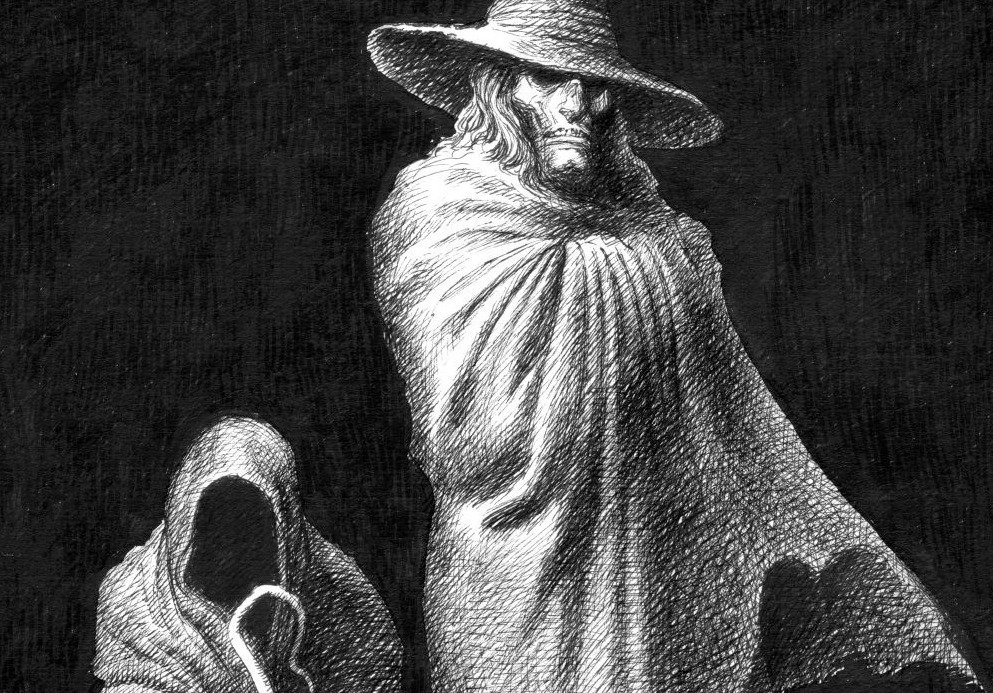“Count Magnus” is a horror story by the English medievalist and author M. R. James (1862–1936), first published in his Ghost Stories of an AntiquaryCollection of eight short stories by the English medievalist and author M. R. James, first published in 1904. (1904).
The narrator begins by explaining that the story he is about to tell is constructed from papers that have come into his hands, promising to reveal how at the end of the story.
Synopsis
Mr Wraxall, is an author of travelogues, who while researching for a book on Scandinavia is visiting Sweden in 1863. During his travels around the country he comes upon an ancient manor house (herrgård) in Vestergothland, which he has been told contains an important collection of family papers. He is received courteously by the de la Gardie family, but declines their offer to remain as their guest, preferring to be independent, and instead stays at the local village inn.
The local church has a mausoleum nearby, built by Count Magnus for himself and his family, the de la Gardies. Wraxall inquires of his landlord about local traditions surrounding Count Magnus. He learns that the count is known locally as having been a harsh landowner, who severely punished his tenants if they were late with their rent. Houses built too near his lands often burned down, and he had been on the Black Pilgrimage and brought something back from it.
Researching among the de la Gardies’ family papers, Wraxall discovers an explanation of the pilgrimage in a book of alchemical tracts, Liber nigræ peregrinationis (The Book of the Black Pilgrimage).[a]The book is fictional. He finds this note, written by the count:
Wraxall presses the landlord of the inn about what it was that Count Magnus brought back from Chorazin, and is told a tale about two men who went poaching at night in the count’s lands; one was found catatonic, and the other was dead, his face having been sucked from his skull.
The following day, accompanied by the deacon, Wrexhall visits the count’s mausoleum. His copper sarcophagus is ornate and contains scenes from his life, as well as a depiction of the count on its top. One scene shows a man being pursued by a cloaked and hooded thing while a man watches. The lid is secured with three padlocks, one of which is unlocked. Visiting the mausoleum again later, Wrexhall finds that now two padlocks are unfastened.
The next day Wrexall prepares to return to England. He stops at the mausoleum to bid farewell to Count Magnus, and expresses a desire to see him. As he does so, the third padlock detaches and the lid begins to rise. Wrexall leaves quickly, but is unable to lock the mausoleum behind him.
Wrexall returns to England safely by canal-boat, but feels that among his fellow passengers are two strange figures who fail to show at mealtimes. He lands at Harwich and takes a vehicle to Belchamp St. Paul, where he secures lodgings. But on the way he sees the two strange figures again, and spends his last night waiting for their arrival.
In the morning Wrexall is found dead in such terrible condition that seven members of the coroner’s jury faint on seeing the body; the death is ruled to be a visitation of God. The house has since lain abandoned, and is eventually inherited by the narrator. He has it pulled down, when the papers on which the story is based are discovered in a forgotten cupboard.
Adaptions
“Count Magnus” has been adapted for television as an episode of the BBC’s A Ghost Story for Christmas series starring Jason Watkins as Wraxall, broadcast in 2022.[1]
See also
- M. R. James bibliographyList of the works written by M. R. James.
Notes
| a | The book is fictional. |
|---|---|
| b | The Prince of the Air is generally considered to be a reference to the Devil. |
References
Bibliography
External links
- Full text of “Count Magnus” at Project Gutenberg

